Don't wanna be here? Send us removal request.
Text
Your Journey to Becoming a Data Scientist
Data science is a dynamic and rewarding field that's in high demand. If you're curious about how to become a data scientist, here's a concise guide to get you started on this exciting journey.
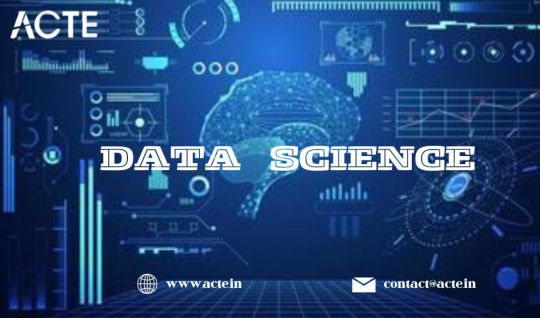
Step 1: The Foundation
Math and Statistics: Begin with a solid understanding of math and statistics, the bedrock of data science.
Programming Skills: Learn a programming language, such as Python or R, which are essential tools for data analysis.
Data Handling: Familiarize yourself with data manipulation using libraries like Pandas.
Step 2: Embrace Machine Learning
Machine Learning Basics: Get to know the fundamentals of machine learning, including supervised and unsupervised learning.
Scikit-Learn: Dive into Scikit-Learn, a popular Python library that simplifies machine learning.
Step 3: Data Preparation
Data Collection: Learn how to collect data from various sources, whether it's web scraping, APIs, or existing datasets.
Data Cleaning: Discover how to clean and prepare data for analysis.
Step 4: Model Building
Choose the right algorithm: Select the machine learning algorithm that fits your problem and fine-tune it for the best results.
Cross-validation: Implement cross-validation techniques to ensure your model works well.
Step 5: Communicate insights
Data Visualization: Use tools like Matplotlib and Seaborn to create meaningful data visualizations.
Storytelling: Develop the skill of explaining your findings effectively and how they impact decision-making.
Step 6: Network
Join the community: Connect with other data science enthusiasts, attend meetups, and engage with professionals to gain insights and job opportunities.
Step 7: Interview and Career Advancement
Interview Preparation: Prepare for data science interviews by practicing coding, problem-solving, and discussing your projects.
Career Growth: After securing a job, continue to learn and advance in your role, as data science offers numerous career paths.
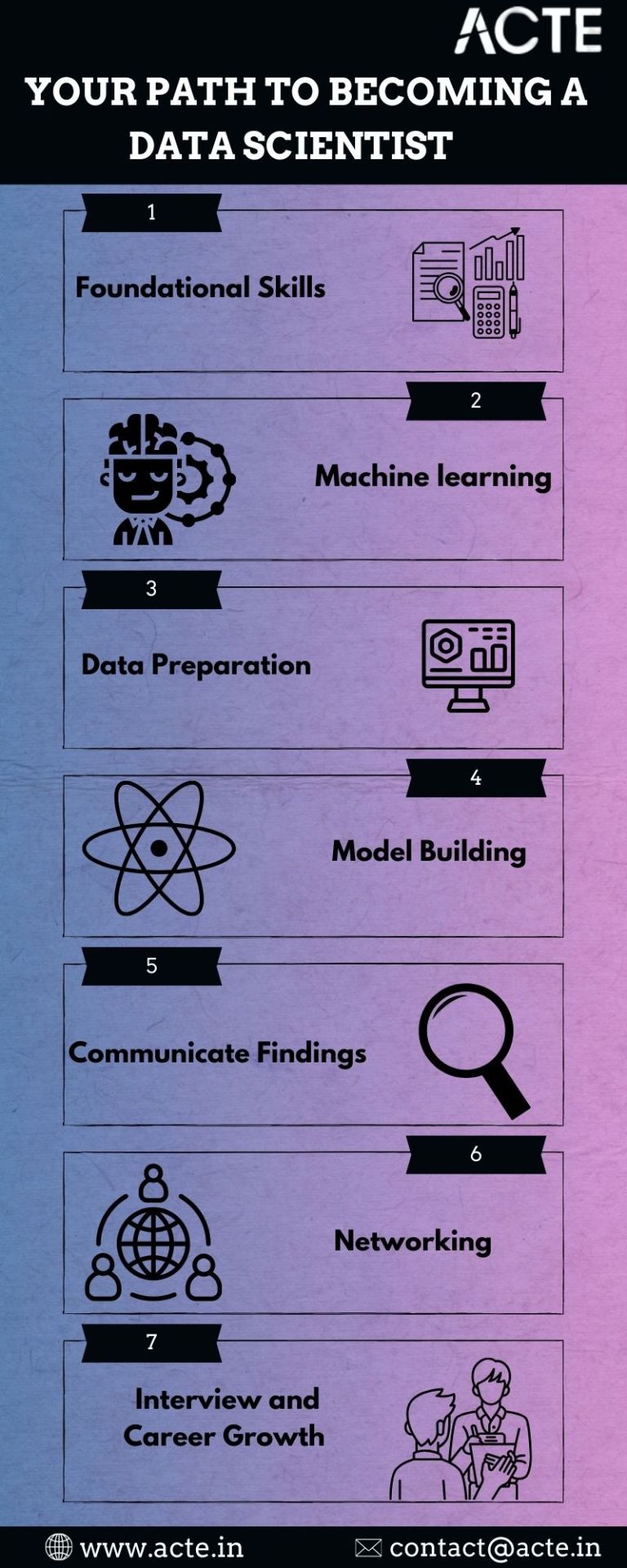
Becoming a data scientist is an exciting journey that involves a strong foundation, mastery of machine learning, practical experience, ongoing learning, and networking.
"If you're looking to expand your knowledge in the field of digital marketing, I highly recommend considering ACTE Technologies. They provide certification programs and even offer assistance with job placement. Their experienced instructors can significantly enhance your learning experience. You can access their services both online and in physical locations. Taking a step-by-step approach is a wise way to go, and enrolling in one of their courses could be a great option if you're interested. I hope this information has been helpful. If you have more questions, please don't hesitate to ask in the comments section. I believe there's always more to learn. If you find my response valuable, please consider following me for future content on digital marketing. Thank you for spending your time here, and I wish you a wonderful day."
0 notes
Text
Demystifying Data Science
In today's data-driven world, the role of a data scientist has gained tremendous significance. But what exactly is a data scientist, and what do they do? In this blog, we'll break down the concept of data science in simple terms and explain the key responsibilities of a data scientist.
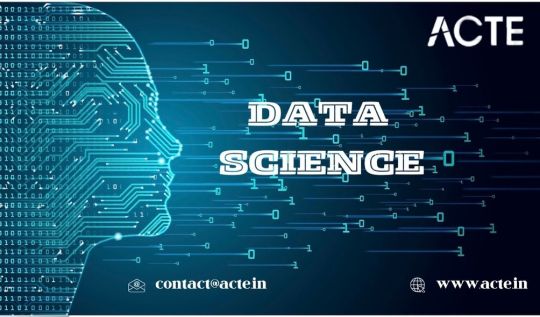
The Data Scientist's Role
Imagine you have a massive pile of puzzle pieces representing data. Your goal is to create a meaningful picture from these pieces. That's where a data scientist comes in. They are the master puzzle solvers of the digital age. Let's delve into their role:
Data Collection: Data scientists start by gathering information. They collect data from various sources, such as databases, websites, or even sensors in the Internet of Things (IoT).
Data Cleaning: Raw data is often messy and unorganized. Data scientists clean and refine the data, removing any errors or inconsistencies. This step is crucial for accurate analysis.
Data Analysis: Once the data is clean, data scientists analyze it to extract valuable insights. They use statistical and mathematical techniques to uncover patterns, trends, and correlations.
Machine Learning: Data scientists often use machine learning algorithms to build predictive models. These models can make recommendations, classify data, or even forecast future trends based on historical data.
Data Visualization: To communicate their findings effectively, data scientists create visual representations of data using charts, graphs, and dashboards. These visuals help non-technical stakeholders understand complex information.
Business Insights: A significant part of a data scientist's job involves translating technical findings into actionable business insights. They help organizations make informed decisions based on data-driven recommendations.
Problem Solving: Data scientists are natural problem solvers. They tackle complex challenges by identifying the right data and developing solutions that leverage that data effectively.

In a nutshell, a data scientist is like a detective of the digital world, using data as their clues to solve complex problems and drive informed decisions. They are at the intersection of technology, mathematics, and business, helping organizations unlock the true potential of their data.
If you want to learn more about data science, I highly recommend that you contact ACTE Technologies because they offer certifications and job placement opportunities. Experienced teachers can help you learn better. You can find these services both online and offline. Take things step by step and consider enrolling in a course if you’re interested. I hope I answered your question successfully. If not, feel free to mention it in the comments area. I believe I still have much to learn. If you feel that my response has been helpful, make sure to follow me and give it an upvote to encourage me to upload more content about data science. Thank you for spending your valuable time and upvotes here. Have a great day.
0 notes
Text
Unleashing the Power of Data Science for Your Career
Are you curious about data science and how it can shape your career? Data science is a fascinating field that combines mathematics, statistics, and computer science to extract meaningful insights from data. In this blog, we'll unravel what data science is and explore how it can be a valuable career choice.
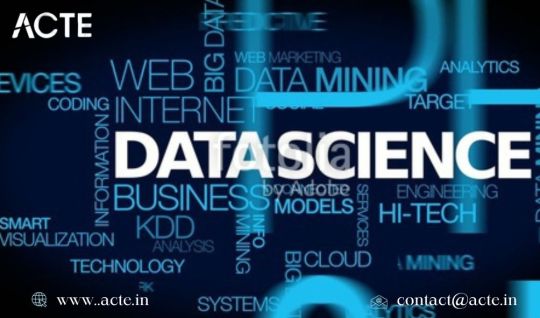
What is data science?
Data science is the art of transforming data into knowledge. It's all about collecting, cleaning, analyzing, and interpreting data to uncover hidden patterns, make informed decisions, and predict future trends. Data scientists are like detectives, but instead of solving crimes, they solve problems by diving into data.
The Building Blocks of Data Science
Here are the key components that make up the world of data science:
Data Collection: This involves gathering data from various sources, such as surveys, sensors, websites, or databases.
Data Cleaning: Raw data can be messy. Data scientists clean and prepare it for analysis, ensuring accuracy and consistency.
Data Analysis: Here, data scientists use statistical techniques and machine learning algorithms to extract insights and draw conclusions from data.
Data Visualization: Transforming data into meaningful charts, graphs, and visual representations helps make complex information more accessible and understandable.
Machine Learning: Data science often includes the use of machine learning algorithms to build predictive models.
Communication: Data scientists must effectively communicate their findings to non-technical stakeholders, helping them make data-driven decisions.
How Data Science Can Boost Your Career
Data science is not just a buzzword; it's a powerful tool with a broad range of applications in various industries. Here's why it's a great choice for building a career:
High Demand: The world is drowning in data, and companies are eager to extract insights from it. This creates a high demand for data scientists.
Versatility: Data science is not limited to one industry. It's used in healthcare, finance, e-commerce, marketing, and more. You can choose to work in an area that genuinely interests you.
Well-Paying Jobs: Data scientists are among the best-paid professionals in the tech industry. Salaries are competitive, and they increase as you gain experience.
Problem Solving: If you enjoy solving puzzles and making sense of complex information, data science provides ample opportunities for intellectual challenges.
Innovation: Data science is at the forefront of innovation. It's responsible for creating recommendation systems, self-driving cars, and personalized healthcare solutions.
Career Growth: With experience, data scientists can progress to leadership roles, such as data science manager or chief data officer.
Global Relevance: The skills you acquire in data science are globally applicable, making it easier to find job opportunities worldwide.
How to Start Your Data Science Journey
If you're intrigued and considering a career in data science, here are the steps to get started:
Learn the Basics: Begin with the fundamentals of statistics, mathematics, and programming. Python and R are popular languages for data science.
Data Analysis Tools: Familiarize yourself with data analysis and visualization tools like Pandas, Matplotlib, and Jupyter.
Machine Learning: Study machine learning algorithms and how to apply them to real-world problems.
Projects: Build your portfolio with hands-on projects. This is crucial for demonstrating your skills to potential employers.
Online Courses and Resources: Take online courses, such as Coursera, edX, or Khan Academy, and leverage open-source resources.
Networking: Connect with other data scientists through social media and forums, and attend data science meetups and conferences.
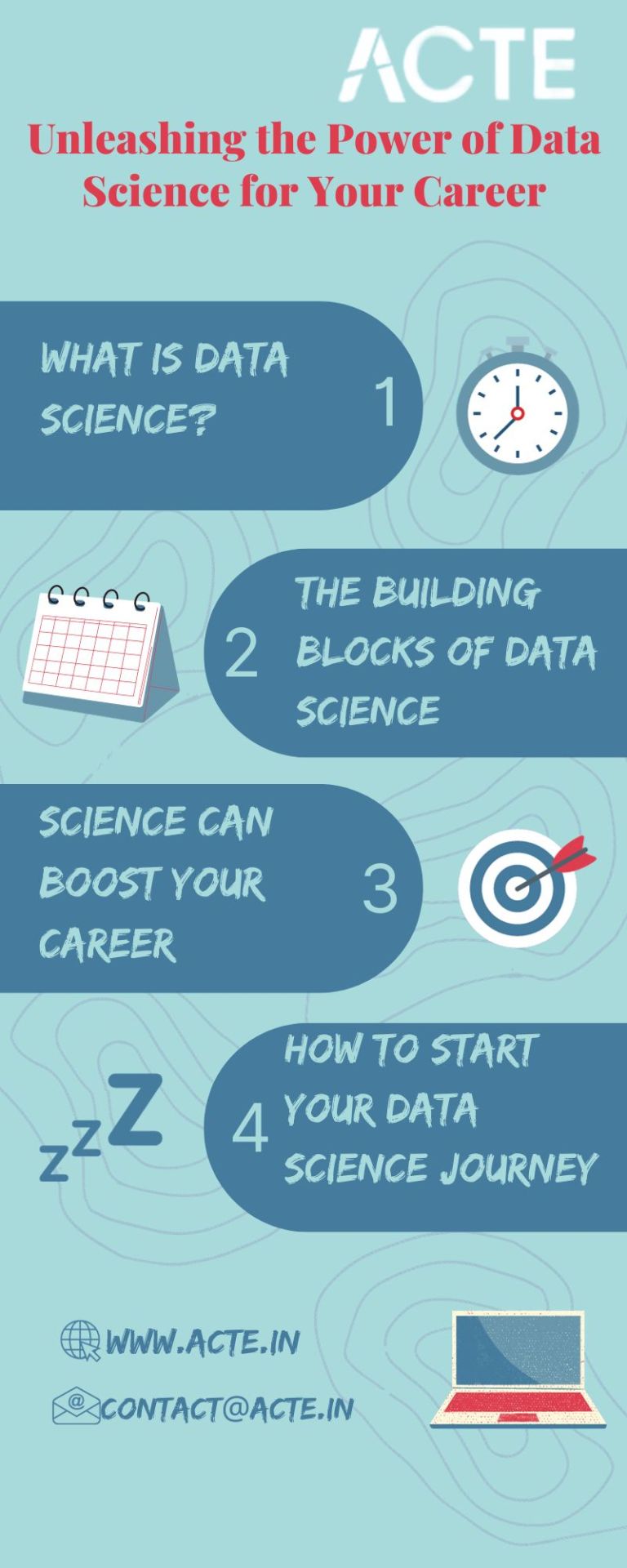
Data science is not just a career; it's an opportunity to make an impact. With the ever-increasing volume of data, data scientists play a vital role in turning raw information into valuable knowledge.
If you want to learn more about data science, I highly recommend that you contact ACTE Technologies because they offer certifications and job placement opportunities. Experienced teachers can help you learn better. You can find these services both online and offline. Take things step by step and consider enrolling in a course if you’re interested. I hope I answered your question successfully. If not, feel free to mention it in the comments area. I believe I still have much to learn. If you feel that my response has been helpful, make sure to follow me and give it an upvote to encourage me to upload more content about data science. Thank you for spending your valuable time and upvotes here. Have a great day.
0 notes
Text
A Day in the Life of a Data Scientist
In today's data-driven world, data scientists play a vital role in helping businesses make informed decisions and solve complex problems. But what does it really feel like to be a data scientist? In this blog post, we'll take a peek into the daily life of a data scientist, breaking down the key aspects of their work in simple words.

Data gathering and cleaning
The day typically starts with data gathering. Data scientists collect information from various sources, such as databases, spreadsheets, or even the internet. This can be a bit like treasure hunting, where you search for the right data gems to solve a particular problem.
However, not all data is ready to use. Much of it needs cleaning, which is like sorting through a messy closet. Data scientists remove duplicates, correct errors, and format the data so that it's ready for analysis.
Exploratory Data Analysis (EDA)
Once the data is cleaned, it's time for exploratory data analysis. Think of this as taking a magnifying glass to the data to understand its story. Data scientists create visualizations, like charts and graphs, to spot patterns and trends. This step helps them get a sense of what's happening in the data before diving deeper.
Model Building
Model building is where the magic happens. Data scientists use algorithms, which are like mathematical recipes, to build models that can make predictions or provide insights. For example, they might create a model to predict customer preferences or forecast future sales.
Choosing the right algorithm is a bit like choosing the right tool for a job. Data scientists experiment with different algorithms and fine-tune them to get the best results.
Machine Learning
Machine learning is a big part of a data scientist's toolkit. It's like teaching a computer to learn from data, just like you learn from your experiences. Data scientists train machine learning models by feeding them data and allowing them to improve their performance over time.
Imagine teaching a robot to recognize cats. Initially, it might make mistakes, but with more data, it gets better at distinguishing cats from other things.
Testing and validation
Before using a model in the real world, data scientists rigorously test and validate it. They split the data into two parts: one for training the model and another for testing its accuracy. This is similar to taking a practice test before the big exam to make sure you're prepared.
If the model performs well, it's ready for deployment. If not, data scientists go back to the drawing board, tweak the model, and repeat the testing process.
Communication
Data scientists don't work in isolation. They collaborate with colleagues from different departments, like marketing, finance, or engineering. Effective communication is essential to explain complex findings in simple terms so that everyone can understand and use the insights.
Think of it as a bridge between the world of data and the world of decision-making.
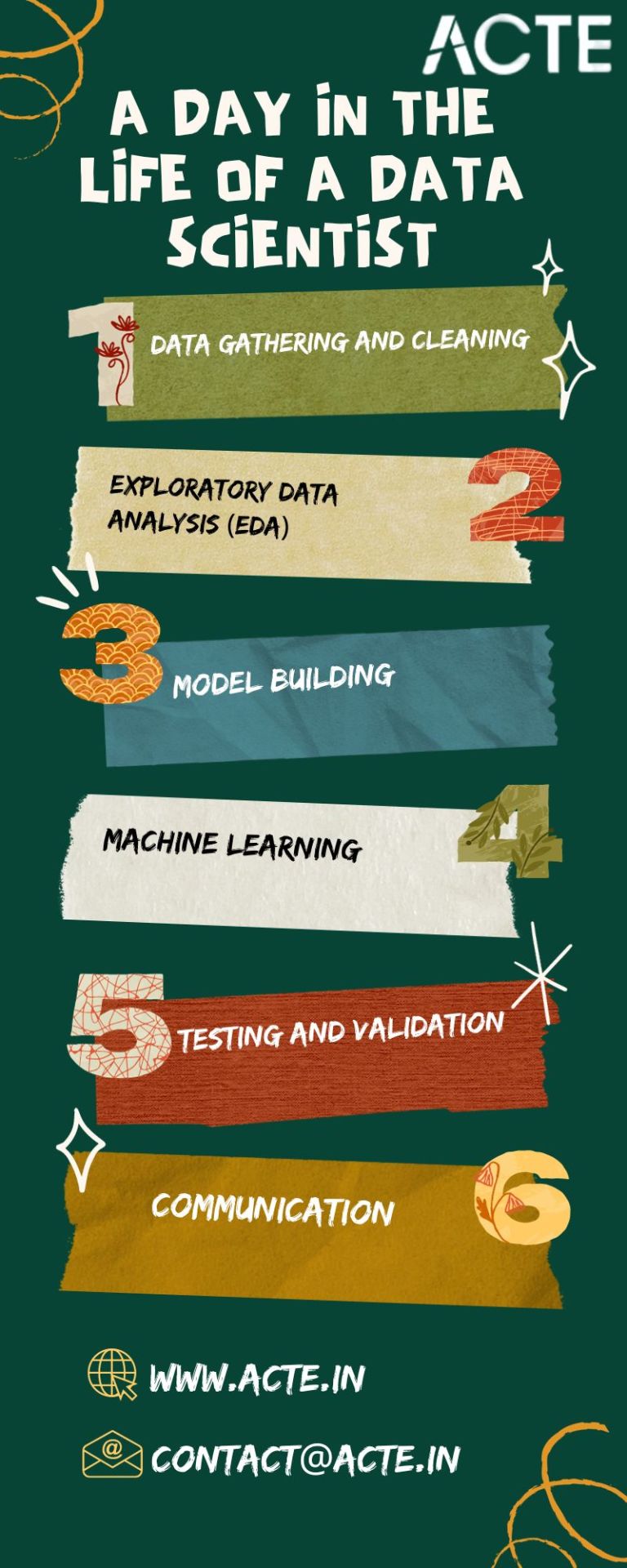
Being a data scientist is like being a detective, mathematician, and storyteller all rolled into one. It involves uncovering hidden patterns, solving puzzles, and translating data into actionable insights.
If you want to learn more about data science, I highly recommend that you contact ACTE Technologies because they offer certifications and job placement opportunities. Experienced teachers can help you learn better. You can find these services both online and offline. Take things step by step and consider enrolling in a course if you’re interested. I hope I answered your question successfully. If not, feel free to mention it in the comments area. I believe I still have much to learn. If you feel that my response has been helpful, make sure to follow me and give it an upvote to encourage me to upload more content about data science. Thank you for spending your valuable time and upvotes here. Have a great day.
0 notes
Text
Unveiling the Responsibilities of a Data Scientist
In today's data-centric era, the role of a data scientist has grown exponentially in significance. However, what precisely are the duties and responsibilities of a data scientist? In this blog, we'll break down the core responsibilities of a data scientist using straightforward language.

Data collection and cleaning
A data scientist's journey starts with the collection of data from diverse sources, including databases, websites, or sensors. Nevertheless, raw data is often untidy and requires substantial effort to clean and structure. This involves tasks like eliminating duplicates, managing missing values, and ensuring data accuracy.
Data Analysis and Exploration
With well-organized data at their disposal, data scientists embark on the analysis phase. They employ statistical and mathematical techniques to uncover hidden patterns, trends, and insights within the data. Frequently, this step involves creating visualizations, such as charts and graphs, to make the data more comprehensible.
Machine learning and predictive modeling
One of the most captivating facets of a data scientist's role is the application of machine learning. Data scientists construct predictive models that can automatically make forecasts or identify patterns. For instance, they might develop a model to predict customer preferences or detect fraudulent activities.
Data Interpretation and Storytelling
Data scientists don't stop at number crunching; they interpret their findings and translate them into actionable insights. They effectively communicate their results to non-technical stakeholders, often utilizing data visualization tools and plain language. This storytelling element is essential for businesses to make informed decisions based on data.
Experimentation and A/B testing
Data scientists play a pivotal role in helping companies enhance their products or services through experiments and A/B tests. These experiments involve comparing two versions of a product or website to determine which one performs better. Data scientists meticulously analyze the results to inform decisions on which changes to implement.
Data security and privacy
Another significant responsibility of data scientists is to ensure the security and privacy of data. They implement safeguards to protect sensitive information and adhere to data privacy regulations like GDPR or HIPAA.

The role of a data scientist revolves around the transformation of raw data into valuable insights that steer business decisions. They collect, cleanse, analyze, and interpret data while upholding its security and privacy. Data scientists are adept storytellers who communicate their findings to guide companies in making well-informed choices. In an era where data is of paramount importance, the role of a data scientist is more crucial than ever, making it a gratifying and stimulating career path for those intrigued by data-driven problem-solving.
If you want to learn more about data science, I highly recommend that you contact ACTE Technologies because they offer certifications and job placement opportunities. Experienced teachers can help you learn better. You can find these services both online and offline. Take things step by step and consider enrolling in a course if you’re interested. I hope I answered your question successfully. If not, feel free to mention it in the comments area. I believe I still have much to learn. If you feel that my response has been helpful, make sure to follow me and give it an upvote to encourage me to upload more content about data science. Thank you for spending your valuable time and upvotes here. Have a great day.
0 notes
Text
The Road to Becoming a Data Scientist
Data science is a highly sought-after field that combines elements of mathematics, statistics, programming, and domain expertise to extract valuable insights from data. Whether you're a recent graduate or someone looking to switch careers, the path to becoming a data scientist can seem daunting. However, with dedication and the right steps, you can embark on this exciting journey. In this blog post, we'll break down the key steps to becoming a data scientist in simple terms.
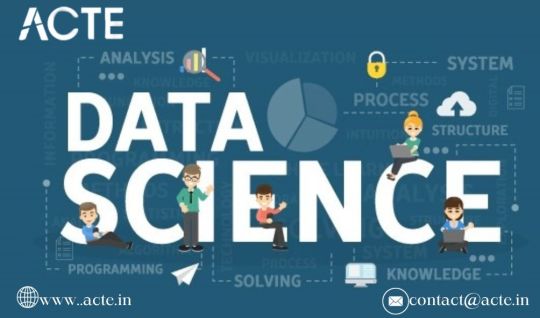
Learn programming languages.
Data scientists need to be proficient in programming to manipulate and analyze data. Here are the key languages to learn:
Python: Python is the most popular language for data science. Learn libraries like NumPy, Pandas, and Scikit-Learn for data manipulation and machine learning.
RR is another language commonly used for statistical analysis and data visualization.
SQL: Understanding SQL is crucial for working with databases and extracting data.
Develop your math and statistical skills.
Data science relies heavily on mathematics and statistics. You don't need to be a math prodigy, but a solid understanding is essential.
Probability and Statistics: Learn concepts like probability distributions, hypothesis testing, and regression analysis.
Linear Algebra: Understand basic linear algebra concepts as they are used in machine learning algorithms.
Gain practical experience.
Theory is important, but practical experience is where you truly grow as a data scientist.
Projects: Work on personal data science projects to apply what you've learned. Kaggle offers datasets and competitions to practice your skills.
Internships: Consider internships or entry-level positions in data-related roles to gain real-world experience.
Master Data Tools and Technologies
Familiarize yourself with data tools and technologies commonly used in the industry.
Data Visualization: Learn tools like Matplotlib, Seaborn, and Tableau for creating compelling data visualizations.
Big Data: Understand frameworks like Hadoop and Spark for handling large datasets.
Data Manipulation: Become proficient in tools like Excel, Pandas, and SQL for data manipulation.
Develop soft skills.
In addition to technical skills, data scientists also need strong soft skills.
Communication: Learn to communicate your findings effectively to both technical and non-technical audiences.
Problem-Solving: Develop critical thinking skills to approach complex data problems.
Network and stay updated.
Networking is crucial in any field.
Attend Conferences: Join data science conferences and meetups to connect with professionals in the field.
Online Communities: Participate in online forums and communities where you can ask questions and share knowledge.
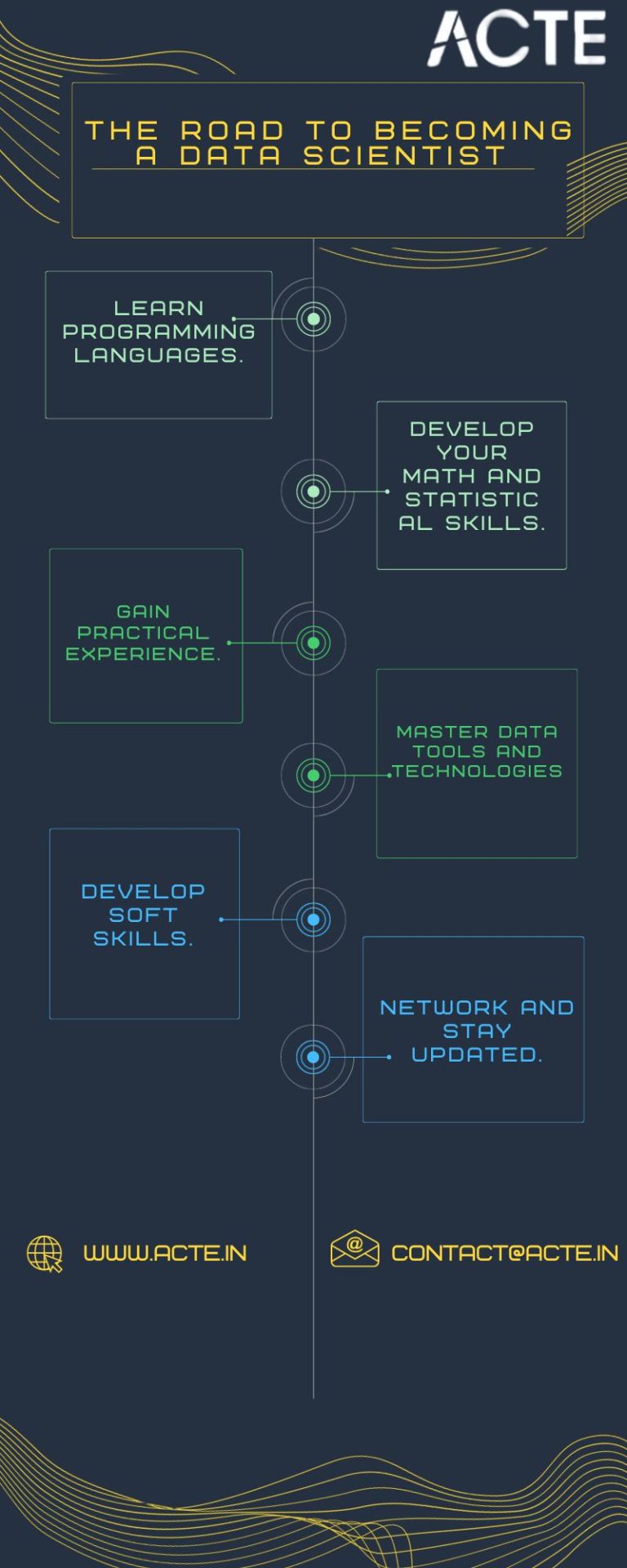
Becoming a data scientist is a rewarding journey that requires dedication and continuous learning. Start with a strong educational foundation, learn programming languages, build your math and statistics skills, gain practical experience, master data tools, and develop soft skills.
If you want to learn more about data science, I highly recommend that you contact ACTE Technologies because they offer certifications and job placement opportunities. Experienced teachers can help you learn better. You can find these services both online and offline. Take things step by step and consider enrolling in a course if you’re interested. I hope I answered your question successfully. If not, feel free to mention it in the comments area. I believe I still have much to learn. If you feel that my response has been helpful, make sure to follow me and give it an upvote to encourage me to upload more content about data science. Thank you for spending your valuable time and upvotes here. Have a great day.
0 notes
Text
What is data science?
Data science is like being a digital detective. It’s about using information to solve problems and discover hidden secrets.

The ingredients of data science
To be a data detective, you need specific tools:
Data: This is your evidence, like numbers and pictures.
Math and Stats: Like a detective’s logic, you need math and stats.
Programming: speaking the computer’s language.
Machine Learning: Your trusty sidekick for finding patterns
Solving real-world mysteries
Data science helps in real life.
Recommendation Systems: Like how Netflix suggests movies you might like.
Healthcare: helping doctors diagnose diseases and predict health trends
Business Decisions: Companies use data to understand customers and make smart choices.
Ethics and responsibility
Just like a detective follows rules, data scientists must be ethical and protect people’s privacy.
The Never-Ending Journey
Data science is like an endless adventure. There’s always more to learn and discover, like a never-ending mystery novel.

If you want to learn more about data science, I highly recommend that you contact ACTE Technologies because they offer certifications and job placement opportunities. Experienced teachers can help you learn better. You can find these services both online and offline. Take things step by step and consider enrolling in a course if you’re interested. I hope I answered your question successfully. If not, feel free to mention it in the comments area. I believe I still have much to learn. If you feel that my response has been helpful, make sure to follow me on Quora and give it an upvote to encourage me to upload more content about data science. Thank you for spending your valuable time and upvotes here. Have a great day.
0 notes
Text
Data Science's Intriguing Aspects
Data science has been making waves in recent years, and for valid reasons! It's an exciting and dynamic field that revolves around collecting, analyzing, and deriving insights from data. But what exactly makes data science so captivating? In this blog post, we'll dissect some of the key elements that render data science a compelling and indispensable discipline in today's world.

Tackling real-world problems
One of the most captivating aspects of data science is its capacity to address real-world issues. Whether it involves predicting disease outbreaks, optimizing supply chains, or enhancing user experiences on websites and apps, data science enables us to make data-driven decisions that lead to tangible enhancements and innovations across diverse industries.
The Intersection of Mathematics, Computer Science, and Domain Expertise
Data science acts as a convergence point for various fields. It amalgamates elements of mathematics, computer science, and domain-specific knowledge to extract valuable insights from data. This interdisciplinary nature makes it an enthralling arena for those who enjoy connecting the dots and applying their skills in a range of domains.
Big Data and Advanced Technologies
We are currently residing in the era of big data, where massive volumes of data are generated continuously. Data science thrives in this data-rich environment, utilizing advanced technologies such as machine learning and artificial intelligence to process and analyze vast datasets. The sheer magnitude and intricacy of these tasks are both challenging and fascinating.
Unearthing Hidden Patterns
Imagine having the capability to unearth concealed patterns and trends within data that were previously imperceptible. Data science techniques, such as clustering and anomaly detection, make it feasible to unearth insights that can revolutionize businesses and fuel scientific breakthroughs. This process of discovery is akin to solving a mystery, and it keeps data scientists engaged and motivated.
Personalization and recommendation systems
Have you ever pondered how streaming services like Netflix know which movies to recommend or how e-commerce giants like Amazon suggest products tailored to your preferences? Data science underpins these personalized recommendations through algorithms that scrutinize your past behavior and choices. Witnessing how data science can craft personalized experiences for individuals is intriguing.
Ethical Considerations and Responsible AI
The ethical facet of data science is both engrossing and critical. As data scientists work with sensitive data and develop algorithms that can impact people's lives, they grapple with ethical quandaries. How do we ensure fairness, transparency, and accountability in our models? These ethical challenges bring depth and complexity to the field.
Continuous learning and innovation
Data science is a field in perpetual motion. Novel techniques, tools, and datasets are continually emerging, necessitating data scientists to be lifelong learners. This attribute keeps the profession vibrant and stimulating, as there's always something new to explore and master.

In a world where data is generated at an unprecedented pace, data science stands as a captivating field offering boundless prospects. It empowers us to address real-world dilemmas, harness the potential of advanced technologies, and make data-informed decisions that foster innovation and positive change.
If you want to learn more about data science, I highly recommend that you contact ACTE Technologies because they offer certifications and job placement opportunities. Experienced teachers can help you learn better. You can find these services both online and offline. Take things step by step and consider enrolling in a course if you’re interested. I hope I answered your question successfully. If not, feel free to mention it in the comments area. I believe I still have much to learn. If you feel that my response has been helpful, make sure to follow and give it an upvote to encourage me to upload more content about data science. Thank you for spending your valuable time and upvotes here. Have a great day.
0 notes
Text
The Marvels of Data Science
What exactly is data science, and why is it generating so much interest? In this article, we will delve into the world of data science from a simplified perspective.

Understanding data science
At its core, data science revolves around the interpretation of data. We live in a world awash with data, from the applications on our smartphones to the sensors in our vehicles. Data scientists act as detectives, sifting through this vast pool of information to uncover hidden patterns, insights, and knowledge.
Data science wields significant influence across various facets of our lives.
1. Enhanced Decision-Making: Businesses employ data science to make well-informed decisions, spanning product recommendations to financial projections.
2. Healthcare: Data analysis aids in identifying disease patterns and elevating patient care.
3. Personalization: Think of personalized content or product recommendations on platforms like Netflix or Amazon—this is a result of data science in action.
4. Science and Research: Data plays a pivotal role in scientific discoveries, ranging from climate science to genetics and astronomy.
5. Social Good: Data science contributes to societal causes such as disaster prediction and response or tracking disease spread.
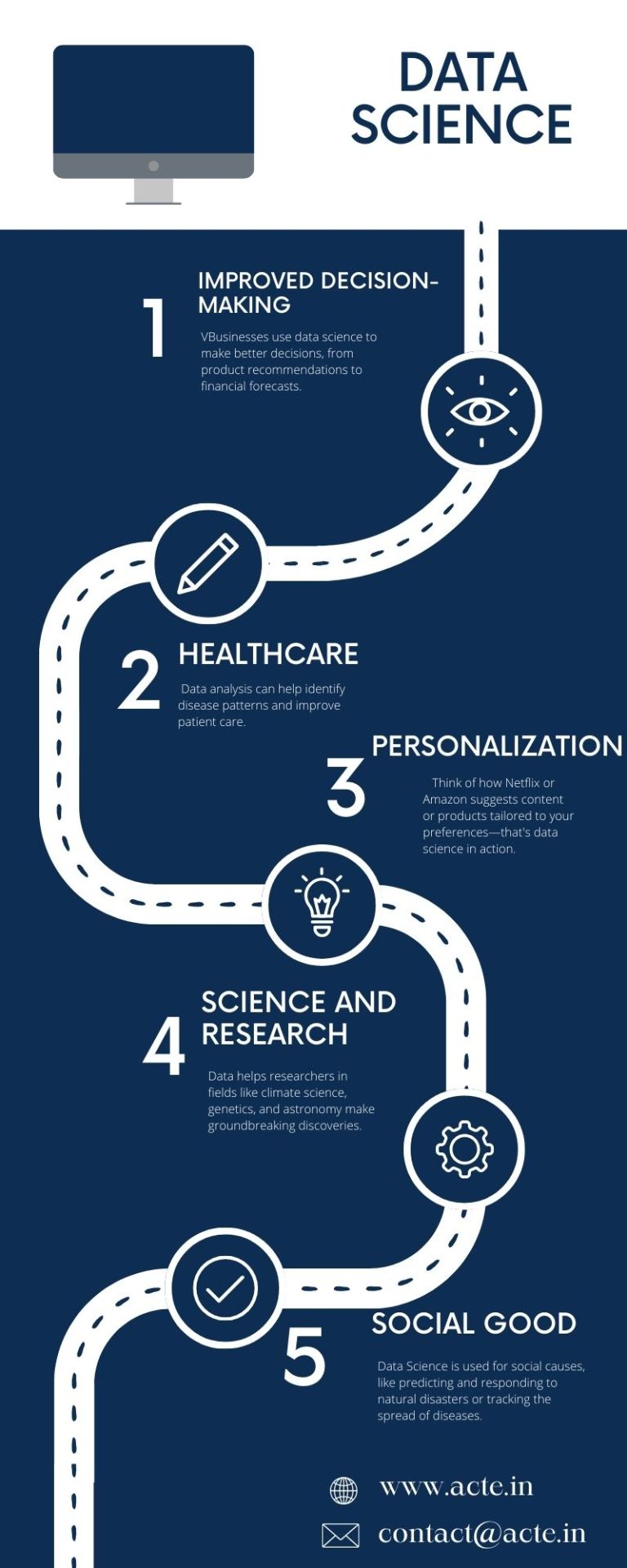
In essence, data science is the art of transforming data into valuable insights. It stands as a potent tool that is reshaping industries and enhancing our daily lives in myriad ways.
If you want to learn more about data science, I highly recommend that you contact ACTE Technologies because they offer certifications and job placement opportunities. Experienced teachers can help you learn better. You can find these services both online and offline. Take things step by step and consider enrolling in a course if you’re interested. I hope I answered your question successfully. If not, feel free to mention it in the comments area. I believe I still have much to learn. If you feel that my response has been helpful, make sure to follow me and give it an upvote to encourage me to upload more content about data science. Thank you for spending your valuable time and upvotes here. Have a great day.
0 notes
Text
The Surging Wave of Data Science Careers
In today's world, data is everywhere, and many businesses and organizations want to use it to make better decisions. This has made data science a popular career choice. In this blog, we'll explore why data science is on the rise and why it's such a sought-after field.
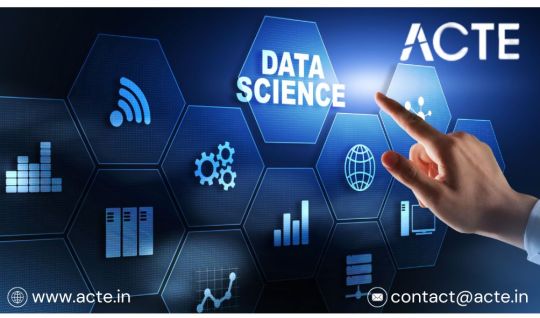
Data Explosion: Every day, we create an enormous amount of data. This includes things like our social media posts and what we buy online. Data scientists are the experts who can make sense of all this information.
Data-Driven Decision-Making: Companies now understand that using data can help them make smarter choices. Data scientists play a big role in helping companies use data to make better decisions.
High Demand, Low Supply: There aren't enough data scientists to fill all the job openings available. This makes it a great career choice with lots of job opportunities.
Diverse Applications: Data science isn't just for one type of job or industry. It can be used in healthcare, finance, marketing, and many other areas. This means you have lots of options for the kind of work you can do.
Competitive Salaries: Because there aren't enough data scientists, they often get paid very well. It's one of the highest-paying jobs in the tech industry.
Continuous Learning: Data science is always changing and evolving. This means you'll always have something new to learn, which can be exciting.
Accessibility of Tools: It's easier than ever to start a career in data science. There are tools and platforms that make it accessible to more people.
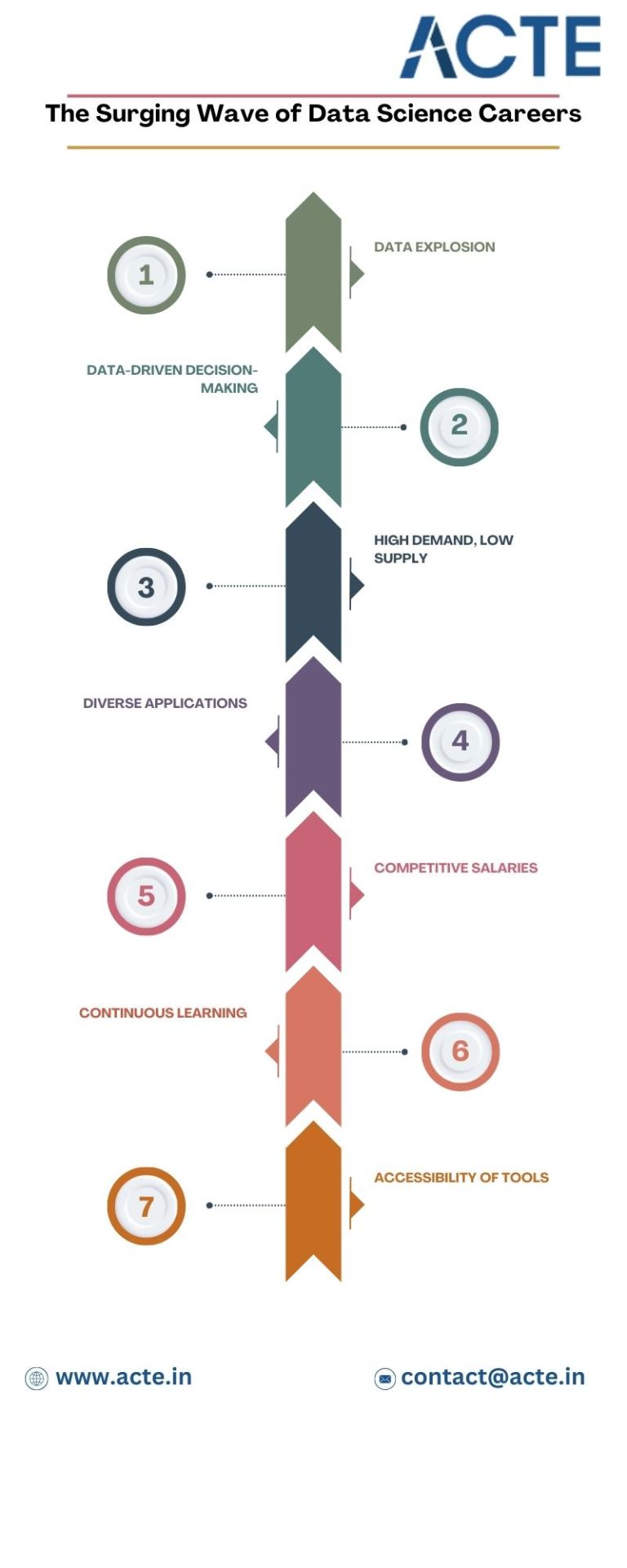
In a world filled with data, data science is a promising and growing field. The high demand, diverse opportunities, good pay, and the chance to keep learning make it a great career choice. If you want to learn more about data science, I highly recommend that you contact ACTE Technologies because they offer certifications and job placement opportunities. Experienced teachers can help you learn better. You can find these services both online and offline. Take things step by step and consider enrolling in a course if you’re interested. I hope I answered your question successfully. If not, feel free to mention it in the comments area. I believe I still have much to learn. If you feel that my response has been helpful, make sure to follow me and give it an upvote to encourage me to upload more content about data science. Thank you for spending your valuable time and upvotes here. Have a great day.
1 note
·
View note